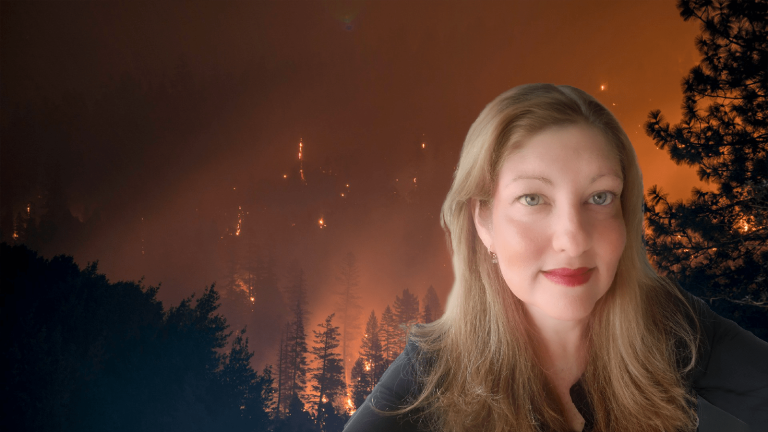A reader asked us:
Advice for children under 3 years old from prolonged fires producing excessive smoke.
To answer this question, we enlisted the help of veteran journalist Johnny Carolina Ponce. Unfortunately, forest fires are very common. Parts of California and many countries in Latin America have been affected by these fires in recent months. Many of these fires are directly related to climate change. Johnny focuses not only on the effects after a bushfire, but also on what should be done before and during a bushfire to avoid the worst effects. This is his response:
Forest fires are unexpected fires that break out in natural areas such as forests and grasslands and can quickly spread to nearby communities and affect air quality. Forest fires are becoming more frequent and severe due to climate change. It is vital that families, especially parents, understand how to protect children from the effects of smoke before, during and after a fire. If smoke affects your area: Children are especially vulnerable because the air they breathe is proportional to their size.
before fire season
If you live in an area prone to wildfires, it's important to have an emergency response plan that includes ways to protect children from smoke exposure. It is important to have an emergency kit ready. During bushfires, the safety of children must be a priority.
If a fire breaks out near your home: If advised by authorities, evacuate immediately. Don’t forget to bring medical records and any medications your child needs.
To reduce smoke exposure:
- Stay indoors: Keep doors and windows closed.
- Improve air quality in your home: Use a high-efficiency air filter (such as HEPA). High-efficiency air filters, such as HEPA (High Efficiency Particulate Air) filters, are devices that capture very small particles in the air, including dust, pollen, mold, bacteria, and other impurities. Capable of capturing particles as small as 0.3 microns with an efficiency of up to 99.97%, these filters are very effective at improving indoor air quality. They are especially useful during wildfires because they help remove smoke particles and other air pollutants from homes and reduce health risks, especially for vulnerable groups such as children, the elderly or those with respiratory conditions.
- Avoid activities that produce more smokesuch as cooking.
- Avoid going out: If you must go out, keep the windows closed and use the air conditioner in recirculation mode.
- Monitor air quality: Check air quality levels through the following platforms aviation network. If the air quality index (AQI) exceeds 150, limit children's outdoor activities. If they have respiratory problems such as asthma, they should stay in a clean environment until the air quality improves.
- mask: Cloth masks do not protect children from smoke. N95 respirators provide better protection if necessary, but their effectiveness depends on fit and are not suitable for young children.
after forest fire
Even after the fire has passed, children may still be exposed to dangers such as ash and debris. Make sure they don't play near these materials as they may be irritating or dangerous.
psychological impact
Wildfires can also affect children emotionally. It's common for them to feel anxious, fearful, or sad. Maintain a stable routine and give them space to express their emotions.
You can learn more about how to reduce your health risks here.
